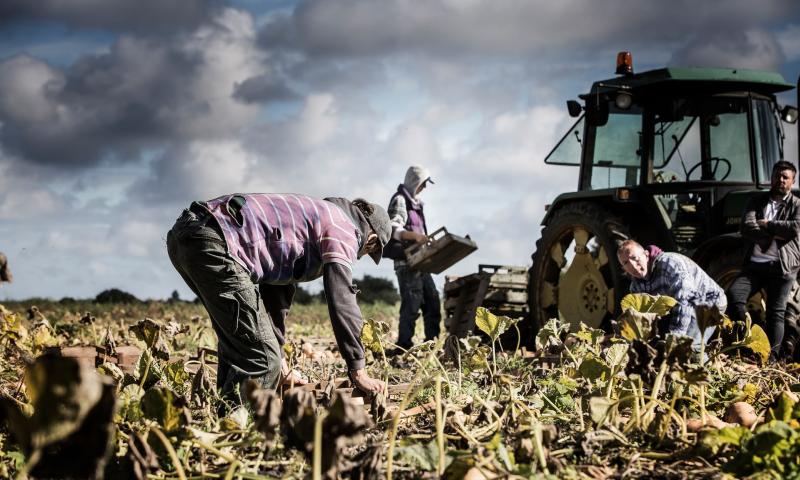
Ten potential 'modern slaves' have been discovered living in a farm building in Bedfordshire, police have said.
Officers were 'flagged down' by two men on a rural road on the Bedfordshire and Cambridgeshire border on Friday night (26 June).
Police visited the address the men had come from and established that 13 men and a pregnant woman were staying at the property.
All those at the property had travelled to the United Kingdom from Romania.
Ten of the people were subsequently safeguarded and taken to a reception centre, and have been offered support under the national referral mechanism for victims of modern slavery.
Two men in their 40s and two men in their 20s were arrested on suspicion of human trafficking and have been released on bail, pending further enquiries.
Subsequent enquiries were then made by police alongside the Gangmasters & Labour Abuse Authority (GLAA) at an address in Lincolnshire, where a number of further potential victims were identified.
A woman in her 40s and a man in his 30s were arrested on suspicion of human trafficking and remain in police custody.
Detective Chief Inspector Louisa Glynn said: “We are doing all we can to protect victims and dismantle the organised crime groups behind this exploitation, whether they exploit people through the sex industry, county lines drug dealing or in sectors such as agriculture.
“This is a stark reminder that the abhorrence of slavery still exists and I would urge people to get in touch with us if they have any suspicions.”
It comes as a report highlighted how British food and farming companies were failing to produce statements that demonstrated what they were doing to end labour exploitation.
Modern Slavery Statements outline what steps a business is taking to ensure modern slavery is eradicated from its supply chain.
Any company operating in the UK with a turnover of £36 million or more is legally required to publish and update this document annually.
Agriculture is deemed 'high-risk' for exploitation and abuse of workers, according to a report released in 2018.
